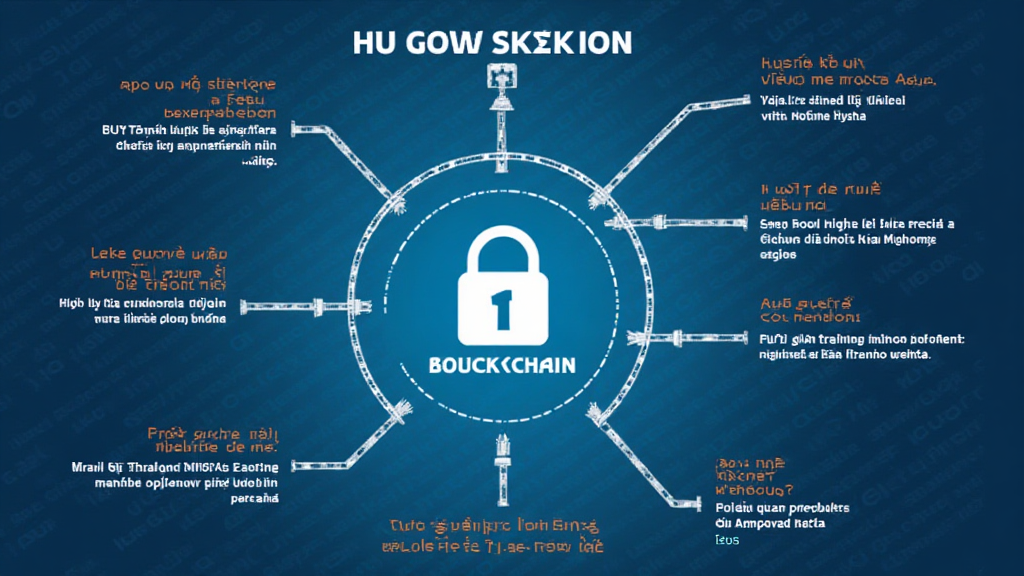Quantum: Revolutionizing Cryptocurrency Security Standards
With approximately $4.1 billion lost to DeFi hacks in 2024, it’s clear that the current security measures in place are no longer sufficient to protect digital assets. As cyber attacks grow increasingly sophisticated, the need for enhanced security solutions becomes paramount. This brings us to an exciting intersection of technology and finance: quantum technology. In this article, we will explore how quantum technology can redefine security standards in cryptocurrency.
Understanding Quantum Technology
Quantum technology refers to the application of quantum mechanics in various fields, including computing, cryptography, and sensors. It enables computation at unprecedented speeds and the ability to perform complex calculations that traditional computers cannot achieve. For instance, quantum computers exploit the principles of superposition and entanglement to process information in ways that can potentially break existing cryptographic standards.
Quantum Computing and Cryptography
Today’s cryptographic systems rely on the computational difficulty of certain mathematical problems, such as factoring large prime numbers. However, quantum computers can efficiently solve these problems, thereby posing a significant threat to traditional encryption methods. Here’s the catch: if quantum computers break current cryptographic protections, the security of cryptocurrency transactions would be in jeopardy.

The Need for Quantum-Resistant Algorithms
As the threat from quantum computers looms nearer, the crux of the issue becomes developing quantum-resistant algorithms. By 2025, it is estimated that quantum computers may reach a point where they can break widely used encryption methodologies. This dire situation necessitates a shift in how we approach blockchain security.
- Implementing new cryptographic standards such as lattice-based or hash-based cryptography.
- Regularly updating software to incorporate quantum-resistant encryption methods.
- Conducting thorough audits for smart contracts to ensure they’re shielded from quantum threats.
2025: A Pivotal Year for Blockchain Security
According to expert projections, quantum computers could become powerful enough to challenge today’s cryptographic systems by 2025. This means that cryptocurrency platforms must embrace quantum resistance even before these advancements materialize. Not taking preemptive action could expose users to risks of theft and loss associated with inadequate security. Vietnam, for instance, has seen a surge of crypto users, with a notable increase in the adoption rate of blockchain technology in recent years.
How Vietnam is Preparing for Quantum Challenges
With a rapidly growing cryptocurrency market, Vietnam is making strides in integrating quantum-resistant measures. The country saw a staggering growth rate of 25% in blockchain user adoption from 2022 to 2023. This figure underlines the importance of proactive security measures in Southeast Asia’s burgeoning crypto landscape.
- Government initiatives and policies to enhance blockchain security standards.
- Educational programs focused on blockchain and quantum computing technologies.
- Collaboration with tech firms to develop quantum-resistant platforms.
Real-World Applications of Quantum Technology in Crypto
Several projects are taking the lead in exploring quantum technology for enhanced cryptocurrency security. For example, projects like Quantum Resistant Ledger (QRL) are implementing quantum-resistant solutions by using advanced cryptographic techniques. Similarly, D-Wave Systems is experimenting with quantum computing to optimize blockchain transactions.
Consensus Mechanisms: Protecting Your Blockchain
Blockchain networks rely on consensus mechanisms such as Proof of Work and Proof of Stake to validate transactions. However, the implications of quantum computing mean that these methods must evolve as well. Blockchain platforms need to research and implement consensus algorithms that are less susceptible to quantum-based attacks, just like ensuring a bank vault can withstand high levels of stress and intrusion attempts.
- Transitioning to hybrid consensus algorithms combining multiple methodologies.
- Incorporating layers of security that utilize quantum-resistant elements.
- Exploring the adoption of Federated Consensus models that can offer robustness against quantum threats.
The Future of Quantum and Cryptocurrency
As we look toward a future where quantum computing becomes a part of the technology landscape, cryptocurrency must evolve accordingly. Embracing new technology, educating stakeholders, and updating security protocols will be paramount in establishing a secure ecosystem for digital assets.
Conclusion: Embracing Quantum for Enhanced Security
As the landscape of cryptocurrency continues to evolve, the integration of quantum technology stands out as a crucial development in ensuring the safety of digital assets. Take the time to educate yourself about quantum-resistant algorithms and stay ahead of the curve. Remember, the security of your digital wallet may depend on it.
By addressing these potential vulnerabilities now, we can safeguard our investments and promote trust in blockchain technology. Visit cryptocoinnewstoday to keep updated on quantum advancements in the cryptocurrency space.
Author: Dr. Minh Tran, a renowned blockchain researcher with published works in over 15 peer-reviewed journals and experience in leading audits for multiple high-profile blockchain projects.





